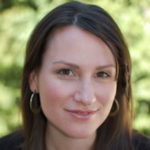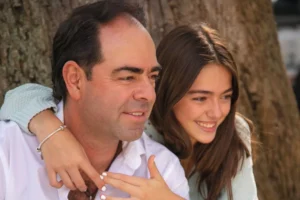“Just wait until you’re in your 40s,” I told a few of my 30-something friends.
We talked about how our personalities had morphed as we aged through different decades of life. As we did, I mentally recalled how in my 20s and even my early to mid-30s, I had often felt the need to prove myself. I wanted others to view me as capable, intelligent and informed. But now in my 40s, that has changed.
“I’m more comfortable,” I explained. “I realize there’s a lot that I don’t know, and I’m OK with admitting that to others.”
You may not be in your 40s yet, but you have most likely entered adulthood. Since I’m probably a few years ahead of you, a word of advice: Do you know what I wish I’d been better at back then? Teachability.
Where teachability starts
The word teachable means able to be taught. But I believe there’s more to teachability than what this simple definition tells us. Let’s dig deeper and ask: What makes us able to be taught?
Think back to your middle or high school years. Just because you were in an environment where things were taught doesn’t mean you always learned, right?
Sometimes you tuned out your teacher. Perhaps you weren’t interested in the content of a lesson or didn’t like how the teacher explained concepts. I get it. I’ve been there, too. I’m more of a communications, history and theatre girl, so I don’t remember much from my science labs. I didn’t think I would need that information later in life. (The joke was on me because I ended up homeschooling my kids for years and did need it.)
Or, perhaps you were interested in the lesson and wanted to learn, but were confused. Instead of asking questions, you tried to figure it out on your own. You didn’t want to look stupid in front of your teacher or classmates.
Whatever the reason, the truth is you and I weren’t able to be taught because we weren’t humble enough. We either didn’t realize our need to learn something, or we did, but we were too concerned with appearing incompetent or ignorant to admit it.
Teachability starts with humility, but I believe we can be humble and still not be teachable. Humility without teachability is what I call being passively humble. We have a very realistic view of ourselves and are OK admitting we don’t know something, yet we never take the initiative to change our lack of knowledge, skill or experience. Think old dog, no new tricks. Or in my case, algebra class, no questions.
But if humility doesn’t automatically make us teachable, what does?
What teachability is, and why it matters
In Paul’s letter to the Philippian church, he instructed his readers, “Don’t be selfish; don’t try to impress others. Be humble, thinking of others as better than yourselves. Don’t look out for your own interests, but take an interest in others, too” (Philippians 2:3–4, NLT). Did you notice the last seven words of that passage? Paul wrote, “…but take an interest in others, too.”
True teachability happens when humility meets an active interest in others. It is relational. It relies on you and me noticing and engaging someone else and their skills, expertise or passions.
Because teachability is relational, its over-arching goal shouldn’t be “me-centered.” While it’s good to become more skilled, knowledgeable and well-rounded, there’s a problem if we’re only asking: What can I learn? How can this benefit me? How can I become a better version of myself?
At the end of all things (a phrase I’m sure I’ve read in a Tolkien novel), I don’t believe God will ask us how we did at becoming a better version of ourselves. Because frankly, improving “me” isn’t a biblical goal. But becoming more like Jesus is what Scripture prescribes. Teachability can help us do that.
Embracing teachability isn’t just for our benefit. Sure, it has the potential to shape us into more well-rounded individuals, but more importantly, it can mold us into people who love others better. When we’re teachable not just for ourselves but for others, too, we can help them feel seen, listened to, and valued — just like Jesus did.
Need a real-world example? Look at the life of missionary Amy Carmichael.
Amy served as a missionary in India for 55 years, from 1895 until she died in 1951. When Amy arrived in southern India, there was a lot she didn’t know about the people and their culture. For one, she didn’t speak their language — so she immediately began learning Tamil.
But she didn’t stop there. She studied local culture and customs and gained an understanding of how the caste system worked. If a custom wasn’t unbiblical, she embraced it. This included sleeping on a mat and wearing a sari. These were things many of her fellow missionaries didn’t do. Yet because Amy wore a sari, she blended in among the local people and was able to rescue children from forced prostitution at the local temples.
Amy was humble enough to admit that fresh off the boat, she wasn’t ready to reach the local people — but she was teachable enough to seek learning opportunities and put what she learned into practice. As a result, Amy was equipped to love women and children in practical, life-saving ways, and she and the foundation she started helped around 2,000 children.
How to become more teachable
Looking back at my 20s and 30s, I wouldn’t say I wasn’t teachable. But unlike Amy, I waited for opportunities to find me instead of seeking them out. And because I often needed to prove myself, I wasn’t always open to learning from others if it made me feel foolish. Now older and (hopefully) wiser, I’m intentionally trying to do better.
So, how can you and I become more teachable? Here are a few things I’m putting into practice.
- Ask others for input.
The first step in becoming more teachable is to clearly understand how teachable you already are. The truth is, we don’t always have an accurate perception of ourselves. Thankfully, God has put others in our lives to help us better identify our strengths and weaknesses.
Choose a friend or family member you’re close to and ask them, “Do you think I’m teachable? Am I able to admit that I don’t know things, and do I actively seek opportunities to learn from others?” Then, be receptive to what they share with you. If you don’t like what you hear, ask God to help you not be defensive. Seek to have a teachable spirit willing to listen and act on others’ wise counsel.
- Make room in your schedule.
After you understand how teachable you are, it’s time to look at your schedule. I didn’t embrace teachability as much as I could have in my 20s and 30s because I was too busy. I now try to purposely leave time open on my calendar.
What’s your schedule look like? Do you have time to ask your grandma to teach you her secret meatball recipe or to listen to your dad’s latest discovery in your family genealogy? If not, your calendar may be too full.
- Notice what others are interested in.
This may be a no-brainer, but taking an interest in others means noticing what others are interested in. We can often be so wrapped up in our lives that we don’t see other people. Slow down and be observant; making room in your schedule gives you more time to notice those around you.
How does your neighbor spend her time? Maybe she gardens and grows the most flavorful tomatoes you’ve ever tasted. What is your coworker always talking about? It might be his love of photography or the outdoors. As you notice others’ interests, start thinking about which interests you share.
- Ask to learn more.
Even if you make room in your schedule, you won’t have time to take an active interest in learning from everyone around you; that’s not realistic. But when you identify something that you already have an interest in or are curious about, it’s easier to make a connection and learn more.
You may have always wanted to start a garden, but don’t have a green thumb. Ask your neighbor to teach you what she knows. Maybe you can get some hands-on experience by helping her with her herbs or veggies. As you do, it’s a perfect opportunity to get to know her better and help her feel seen, listened to, and loved by you.
A lifelong learner
It’s easy to view my 20s and 30s in hindsight and identify how I’ve changed and what I could have done better. Sometimes when I do, I’m tempted to live in regret and feel grief over the opportunities I missed or handled poorly.
But as I talked with my friends that night, I didn’t welcome regret. Instead, I embraced another opportunity to be teachable, learn from my mistakes, and continue changing. And no matter what age you are, you can do the same.
Copyright 2023 Ashleigh Slater. All rights reserved.











